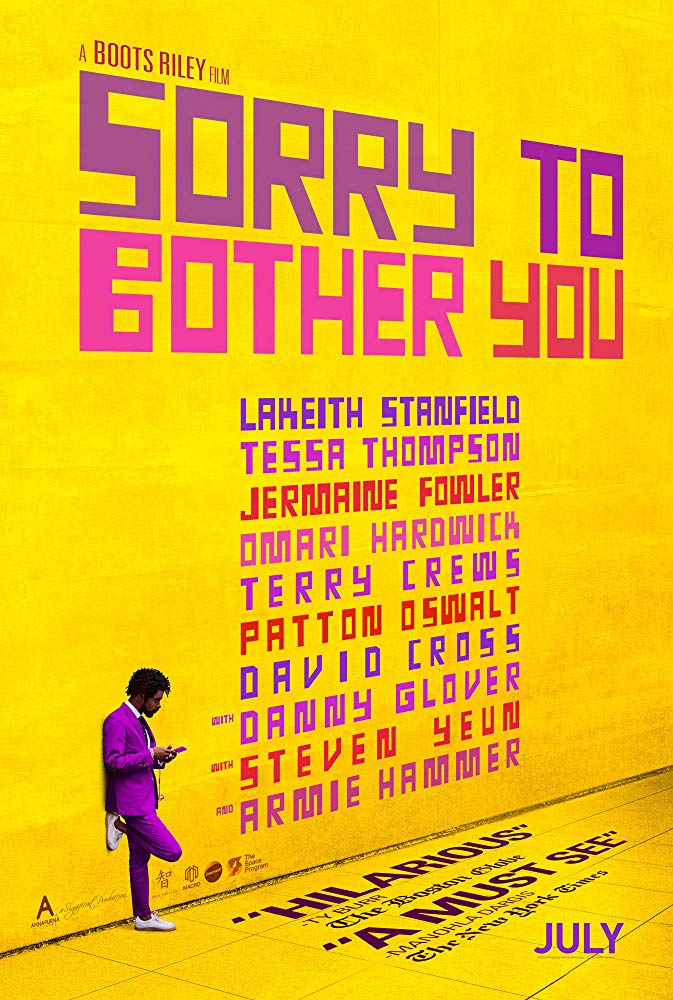We have all been there, doing our daily routines, relaxing until suddenly, we get a ring from an unknown number. We answer and on the other end are the words “Sorry to bother you” followed by a sales pitch. However, now, through the eyes of first time writer and director Boots Riley, we get to see how that phone call is formed.
Set in alternate present-day America, our protagonist Cassius Green (Lakeith Stanfield) is propelled into the surreal world of telemarketing. However, where his friends and colleagues unite and fight the depressed system, Cassius rises, finding himself in a bizarre world where greed is king and morals come to die. Joining us in this alternate world is Cassius’s girlfriend Detroit (Tessa Thompson), a budding political artist with earrings to die for, and Salvador (Jermaine Fowler) who brings Cassius into telemarketing unaware of the consequences of that action. The secret to Cassius’s telemarketing success comes in the form of the film’s comedic highlight of “the white voice”. This is a term, used by an elder telemarketer, to refer to a voice that sounds like the owner has everything; they are comfortable, they are content, and they want to share that with you.
Despite the fairly in-depth review of the plot above, it only scratches the surface of this intricate, complex and fresh interpretation of greatness from poor beginnings. Whilst other films, such as the current Fantastic Beasts outing, fail to balance a multitude of story lines, Sorry to Bother You blends its’ plotlines together allowing the threads to seamlessly weave in and out of each other, providing the viewer a grand sense of the world it takes place in.
Upon release, the film has been harkened back to three pieces of popular media. Firstly, its’ themes on race and class relations, especially in the USA, allows Sorry to Bother You to be coined as a “social horror” being likened to 2017’s Get Out. Secondly, by presenting a surreally twisted alternate setting, as well as the worst sides of humanity, the film provides connotations with Black Mirror. Lastly, the third act, with one of the most outrageous and jaw-dropping plot twists of recent times, results in a direct association with the infamous revelation from 1973’s Soylent Green. These three inspirations combine to form a funny, intense and beautifully directed film which truly leaves a lot to think about.
[embedyt] https://www.youtube.com/watch?v=XthLQZWIshQ[/embedyt]
Despite this, Sorry to Bother You is not for everyone. Even with genius strokes such as costume design, the third act, whilst jaw-dropping for me, will be polarising for others and does have the ability to ruin what has come before. However, whilst it may not claim awards, cult status is ultimately what awaits this marmite gem of a film.
Image source: IMDB



